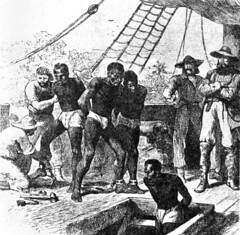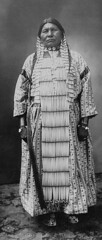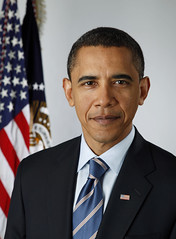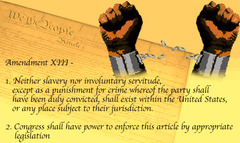| 5664872896 | Alamo | (February 23 - March 6, 1836) a pivotal event in the Texas Revolution. Following a 13-day siege, Mexican troops under President General Antonio López de Santa Anna launched an assault on the Alamo Mission near San Antonio de Béxar (modern-day San Antonio, Texas) | | 0 |
| 5664872897 | Austin, Stephen F. | (November 3, 1793 - December 27, 1836) Known as the Father of Texas, he led the second, and ultimately successful, colonization of the region by bringing 300 families from the United States to the region in 1825 | | 1 |
| 5664875098 | Bleeding Kansas | A series of violent political confrontations in the United States involving anti-slavery Free-Staters and pro-slavery "Border Ruffian" elements in Kansas between 1854 and 1861 | | 2 |
| 5664876706 | Brown, John | (May 9, 1800-December 2, 1859) a white American abolitionist who believed armed insurrection was the only way to overthrow the institution of slavery in the United States. | | 3 |
| 5664878742 | Buchanan, james | (April 23, 1791-June 1, 1868) was the 15th President of the United States (1857-61), serving immediately prior to the American Civil War | | 4 |
| 5664878743 | California Trail | An emigrant trail across the western half of the North American continent from Missouri River towns to what is now the state of California | | 5 |
| 5664883087 | Church of Jesus Christ of Latter-day Saints | Organized informally in 1829 in northwestern New York and then formally on April 6, 1830, it was the first organization to implement the principles found in Smith's newly published Book of Mormon, and thus represents the formal beginning of the Latter Day Saint movement | | 6 |
| 5664883088 | Compromise of 1850 | A package of five separate bills passed by the United States Congress in September 1850, which defused a four-year political confrontation between slave and free states regarding the status of territories acquired during the Mexican-American War (1846-48). | | 7 |
| 5664887785 | Confederate States of America | A confederation of secessionist American states existing from 1861 to 1865. It was originally formed by seven slave states in the Lower South region of the United States whose regional economy was mostly dependent upon agriculture, particularly cotton, and a plantation system that relied upon the chattel enslavement of African Americans. | | 8 |
| 5664887786 | Copperheads | A vocal faction of Democrats in the Northern United States of the Union who opposed the American Civil War | | 9 |
| 5664890214 | Crittenden Amendment | A series of constitutional amendments proposed in Congress in 1860 to serve as a compromise between proslavery and antislavery factions, one of which would have permitted slavery in the territories south but not north of latitude 36°30′N | | 10 |
| 5664890215 | Davis, Jefferson | (June 3, 1808 - December 6, 1889) an American politician who was a U.S. Representative and Senator from Mississippi, the 23rd U.S. Secretary of War, and the President of the Confederate States of America during the American Civil War | | 11 |
| 5664892336 | Douglas, Stephen | (April 23, 1813 - June 3, 1861) was an American politician from Illinois and the designer of the Kansas-Nebraska Act. He was a U.S. representative, a U.S. senator, and the Democratic Party nominee for president in the 1860 election | | 12 |
| 5664895025 | Dred Scott v. Sanford | A landmark decision by the U.S. Supreme Court in which the Court held that African Americans, whether enslaved or free, could not be American citizens and therefore had no standing to sue in federal court, and that the federal government had no power to regulate slavery in the federal territories acquired after the creation of the United States | | 13 |
| 5664895026 | Election of 1844 | Democrat James K. Polk defeated Whig Henry Clay in a close contest that turned on the controversial issue of slavery expansion through the annexation of the Republic of Texas. | | 14 |
| 5664899736 | Election of 1848 | It was won by Zachary Taylor of the Whig Party, who ran against former President Martin Van Buren of the Free Soil Party and Lewis Cass of the Democratic Party | | 15 |
| 5664899737 | Election of 1856 | President Franklin Pierce was defeated in his effort to be re-nominated by the Democratic Party. James Buchanan, an experienced politician who had held a variety of political offices, was serving as the United States Ambassador to the United Kingdom and won the nomination instead. | | 16 |
| 5664902548 | Election of 1860 | The United States had been divided during the 1850s on questions surrounding the expansion of slavery and the rights of slave owners. In 1860, these issues broke the Democratic Party into Northern and Southern factions, and a new Constitutional Union Party appeared. In the face of a divided opposition, the Republican Party, dominant in the North, secured a majority of the electoral votes, putting Abraham Lincoln in the White House with almost no support from the South | | 17 |
| 5664902549 | Expansionism | more commonly refers to the doctrine of a state expanding its territorial base (or economic influence) usually, though not necessarily, by means of military aggression | | 18 |
| 5664904006 | Forty niners | Participants in the 1849 California Gold Rush | | 19 |
| 5664905101 | Free Soil Party | A political party that consisted of anti-slavery former members of the Whig Party and the Democratic Party. Its main purpose was to oppose the expansion of slavery into the western territories. | | 20 |
| 5664905102 | Fremont, John C. | (January 21, 1813-July 13, 1890) an American military officer, explorer, and politician who became the first candidate of the anti-slavery Republican Party for the office of President of the United States | | 21 |
| 5664907780 | Fugitave Slave Act | Laws passed by the United States Congress in 1793 and 1850 to provide for the return of slaves who escaped from one state into another state or territory. | | 22 |
| 5664909682 | Gadsden Purchase | A region of present-day southern Arizona and southwestern New Mexico that was purchased by the United States in a treaty signed on December 30, 1853 by James Gadsden who was the American ambassador to Mexico at that time. | | 23 |
| 5664909683 | Harpers Ferry | A historic town in Jefferson County, West Virginia, United States. Best known for John Brown's raid on the Armory in 1859 and its role in the American Civil War | | 24 |
| 5664912359 | Houston, Sam | (March 2, 1793-July 26, 1863) an American politician and soldier, best known for his role in bringing Texas into the United States as a constituent state. His victory at the Battle of San Jacinto secured the independence of Texas from Mexico | | 25 |
| 5664914174 | Kansas-Nebraska Act | Created the territories of Kansas and Nebraska by Democratic Senator Stephen A. Douglas of Illinois. The initial purpose of the Kansas-Nebraska Act was to open up many thousands of new farms and make feasible a Midwestern Transcontinental Railroad | | 26 |
| 5664915444 | Kearney, Stephen W. | (August 30, 1794-October 31, 1848), was one of the foremost antebellum frontier officers of the United States Army. He is remembered for his significant contributions in the Mexican-American War, especially the conquest of California. | | 27 |
| 5664917424 | Lecompton Constitution | The second of four proposed constitutions for the state of Kansas. The document was written in response to the anti-slavery position of the 1855 Topeka Constitution of James H. Lane and other free-state advocates | | 28 |
| 5664917425 | Lincoln, Abraham | (February 12, 1809 - April 15, 1865) was the 16th President of the United States, serving from March 1861 until his assassination in April 1865. Led the United States through its Civil War while preserving the Union, abolishing slavery, strengthening the federal government, and modernizing the economy. | | 29 |
| 5664919963 | Lincoln-Douglass Debates | A series of seven debates between Abraham Lincoln, the Republican candidate for the United States Senate from Illinois, and incumbent Senator Stephen Douglas, the Democratic Party candidate | | 30 |
| 5664919964 | Manifest Destiny | A widely held belief in the United States that American settlers were destined to expand throughout the continent | | 31 |
| 5664922013 | Mexican Cession | The region of the modern day southwestern United States that Mexico ceded to the U.S. in the Treaty of Guadalupe Hidalgo in 1848, | | 32 |
| 5664922014 | Morman Trail | The 1,300-mile route that members of The Church of Jesus Christ of Latter-day Saints traveled from 1846 to 1868 | | 33 |
| 5664927645 | Oregon Trail | East-west large-wheeled wagon route and emigrant trail that connected the Missouri River to valleys in Oregon | | 34 |
| 5664927646 | Pierce, Franklin | (November 23, 1804-October 8, 1869) was the 14th President of the United States (1853-57). A northern Democrat who saw the abolitionist movement as a fundamental threat to the unity of the nation. His polarizing actions in championing and signing the Kansas-Nebraska Act and enforcing the Fugitive Slave Act | | 35 |
| 5664929675 | Polk, James K. | (November 2, 1795 - June 15, 1849) was the 11th President of the United States (1845-49) | | 36 |
| 5664929676 | Popular Sovereignty | The principle that the authority of a state and its government is created and sustained by the consent of its people, through their elected representatives (Rule by the People), who are the source of all political power | | 37 |
| 5664931813 | Republican Party | One of the two major contemporary political parties in the United States, the other being its historic rival, the Democratic Party. | | 38 |
| 5664933834 | Santa Anna, Antonio Lopez | (24 February 1794 - 21 June 1876), a Mexican politician and general who greatly influenced early Mexican politics and government | | 39 |
| 5664933835 | Scott, Winfield | (June 13, 1786 - May 29, 1866) was a United States Army general, and unsuccessful presidential candidate of the Whig Party in 1852. | | 40 |
| 5664935875 | Smith, Joseph | (December 23, 1805 - June 27, 1844) was an American religious leader and founder of Mormonism and the Latter Day Saint movement | | 41 |
| 5664937681 | Stowe, Harriet Beecher | (June 14, 1811 - July 1, 1896) was an American abolitionist and author. She came from a famous religious family and is best known for her novel Uncle Tom's Cabin (1852) | | 42 |
| 5664937682 | Taylor, Zachary | (November 24, 1784 - July 9, 1850) was the 12th President of the United States, serving from March 1849 until his death in July 1850. Before his presidency, he was a career officer in the United States Army, rising to the rank of major general. | | 43 |
| 5664939719 | Temperance Movement | A social movement against the consumption of alcoholic beverages. It typically criticizes excessive alcohol consumption, or promote complete abstinence | | 44 |
| 5664941251 | Thoreau, Henry David | (July 12, 1817 - May 6, 1862) American author, poet, philosopher, abolitionist, naturalist, tax resister, development critic, surveyor, and historian. As a leading transcendentalist, is best known for his book Walden, a reflection upon simple living in natural surroundings | | 45 |
| 5664941252 | Transcendentalism | Philosophy which holds that reasoning is key to understanding reality which stresses intuition and spirituality | | 46 |
| 5664944502 | Treaty of Guadalupe Hidalgo | The peace treaty signed on February 2, 1848, in the Villa de Guadalupe Hidalgo between the United States and Mexico that ended the Mexican-American War (1846-48). | | 47 |
| 5664944503 | Truth, Sojourner | An African-American abolitionist and women's rights activist. After going to court to recover her son, in 1828 she became the first black woman to win such a case against a white man. | | 48 |
| 5664946255 | Tubman, Harriet | (1821-1913) black antislavery activist who helped slaves escape to the North via the Underground Railroad, spy for the Northern army during the Civil War | | 49 |
| 5664946288 | Turner, Nat | (October 2, 1800 - November 11, 1831) was an African-American slave who led a rebellion of slaves and free blacks in Southampton County, Virginia on August 21, 1831 | | 50 |
| 5664948578 | Uncle Toms Cabin | An anti-slavery novel by American author Harriet Beecher Stowe. Published in 1852, the novel helped lay the groundwork for the Civil War | | 51 |
| 5664948579 | Underground Railroad | Secret system of escape routes used by slaves to reach the free states in the North (before the American Civil War) | | 52 |
| 5664951507 | Unitarianism | A Christian theological movement named for the affirmation that God is one entity, in direct contrast to Trinitarianism, which defines God as three persons in one being | | 53 |
| 5664951508 | Utopian Communities | An ideally perfect society, especially in its social, political, and moral aspects | | 54 |
| 5664955265 | Walden:Or life in the Woods | A book by transcendentalist Henry David Thoreau. The text is a reflection upon simple living in natural surroundings. | | 55 |
| 5664955266 | Wilmot Proviso | Proposed an American law to ban slavery in any territory acquired from Mexico in the Mexican War. The conflict over the proviso was one of the major events leading to the American Civil War. | | 56 |
| 5664956857 | Women's Suffrage | The movement for women including the right of a woman to vote | | 57 |
| 5664956858 | Young, Brigham | (1801-1877) American religious leader, president of the Church of Jesus Christ of Latter-Day Saints, governor of Utah | | 58 |





























































































































































































